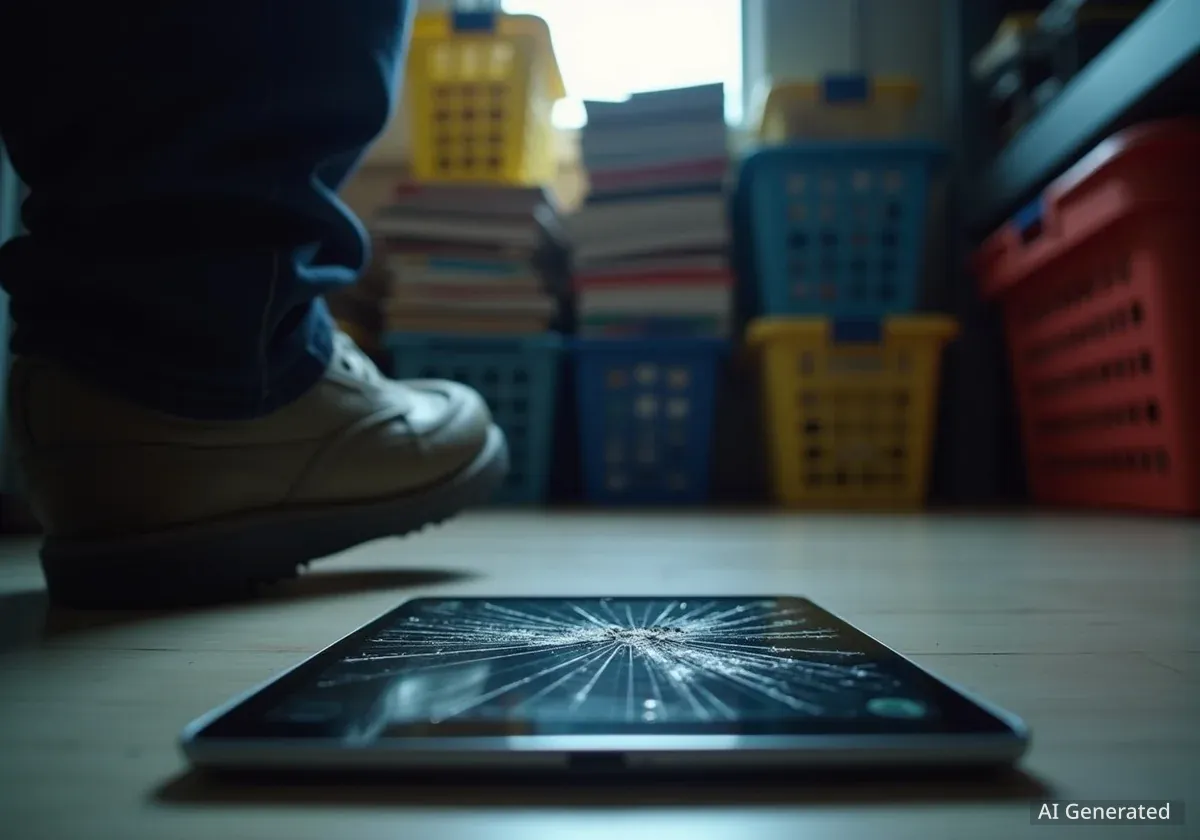A seemingly minor incident in a cramped college dorm room has ignited a broader online conversation about roommate etiquette, personal space, and the social obligation to apologize. The situation involved a student who accidentally stepped on her roommate's iPad, leading to questions about whether an apology was necessary when no damage occurred and the other person was occupying a shared pathway.
Key Takeaways
- A college student accidentally stepped on her roommate's iPad while getting out of bed in their shared, small dorm room.
- The iPad was not damaged, and the roommate who owned the device reportedly laughed off the incident without issue.
- The student who stepped on the device did not offer a formal apology, believing it was an unavoidable accident due to limited space.
- A discussion with a friend prompted an online debate, with opinions divided on whether an apology was warranted.
Details of the Roommate Incident
The scenario was shared by a second-year college student who has lived with the same roommate for two consecutive years. According to her account, the two have a good relationship, but a key factor in their living situation is the extremely limited space in their university-provided dorm room.
A recurring element of their cohabitation is one roommate's preference for sitting, studying, and relaxing on the floor. This habit often places her directly in the narrow path between their two beds, which occupies a significant portion of the room's usable area.
An Unintentional Accident
The student explained that this arrangement has led to frequent, minor physical interactions. "There have been multiple times where I’ve accidentally kicked her getting out of bed, or knocked something over when trying to get around her," she stated. These events were typically brushed aside by both parties.
One morning, the situation escalated slightly when the student got out of bed and stepped directly onto her roommate's iPad, which was on the floor. While the device did not crack or sustain any visible damage, the action interrupted what the roommate was watching. The student's response was a simple "whoops" before she continued with her morning routine. Her roommate reportedly giggled and did not express any anger or frustration.
The Challenge of Modern Dorm Living
University dormitories are often characterized by their small size. According to data from various housing surveys, the average double-occupancy dorm room in the U.S. can range from 120 to 200 square feet. This limited area must accommodate beds, desks, closets, and personal belongings for two individuals, making navigation and personal space a constant negotiation.
The Debate Over Politeness and Responsibility
The incident seemed resolved between the two roommates until the student recounted the story to a friend from high school. The friend's immediate question was whether she had apologized for stepping on the iPad. When the student said no, explaining that her roommate was in her way, the friend insisted that an apology was still necessary, regardless of the circumstances.
This difference in opinion prompted the student to seek a wider perspective online, asking if she was wrong for not saying sorry. The query opened up a significant discussion, with people offering varied viewpoints on social responsibility and roommate etiquette.
"I said no because technically she was in my way. She said that doesn’t matter, and I should apologize anyway even if it was an accident," the student wrote, summarizing the core conflict.
Arguments Against Apologizing
Some individuals who responded to the story sided with the student, arguing that the roommate assumed a risk by habitually occupying a high-traffic area with her belongings. They suggested that in such a cramped environment, accidents are inevitable. The fact that the roommate on the floor was not upset was seen as evidence that both parties had a mutual understanding of their shared space limitations.
One commenter noted that if this is a recurring issue and both roommates are comfortable with the arrangement, forcing a formal apology for every minor bump or misstep would be unnecessary and could introduce artificial tension into an otherwise functional living situation.
Arguments for a Simple Apology
However, a larger portion of the feedback suggested that a simple apology is a matter of basic courtesy. Many argued that apologizing is not always an admission of fault but rather an expression of regret that an unfortunate event occurred. In this case, saying "sorry" would acknowledge the other person's property was involved, even if the act was unintentional.
Communication is Key: According to housing advisors and resident assistants at numerous universities, the number one cause of roommate conflicts is not a single major event, but a series of small, unaddressed issues related to communication, cleanliness, and respect for shared space.
Several commenters pointed out that while the roommate on the floor may have been physically "in the way," the act of stepping on an electronic device could have had costly consequences. A simple "Oh, sorry about that!" could serve to de-escalate any potential resentment and reinforce a positive and respectful relationship.
Broader Implications for Cohabitation
This small-scale dorm room drama reflects a larger challenge faced by millions of people living in shared spaces, from college students to families and urban apartment dwellers. The incident highlights the importance of establishing clear boundaries and communication protocols.
Experts in conflict resolution often advise roommates to have proactive conversations about their habits and expectations. Key topics to discuss include:
- Use of shared space: Defining how common areas, including floor space, will be used.
- Personal belongings: Establishing rules for keeping personal items, especially valuable ones, safe and out of harm's way.
- Communication style: Agreeing on how to address minor annoyances before they become major conflicts.
In this case, while the roommates appeared to have a non-verbal understanding, the outside perspective revealed a potential crack in their social contract. The debate ultimately serves as a reminder that what one person considers a non-issue, another might view as a breach of etiquette, underscoring the subjective nature of politeness in close quarters.




